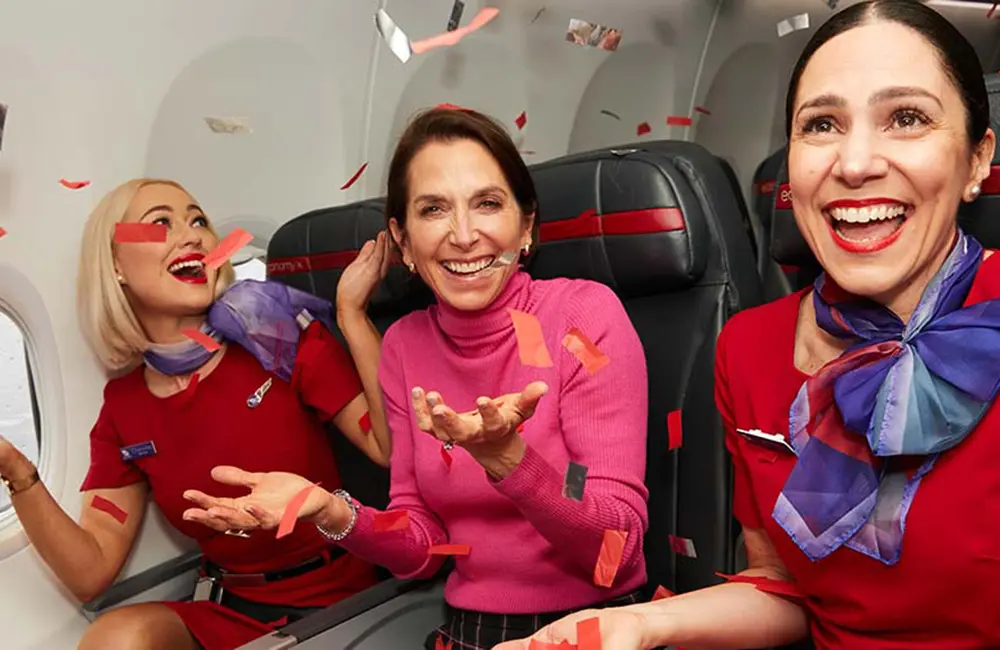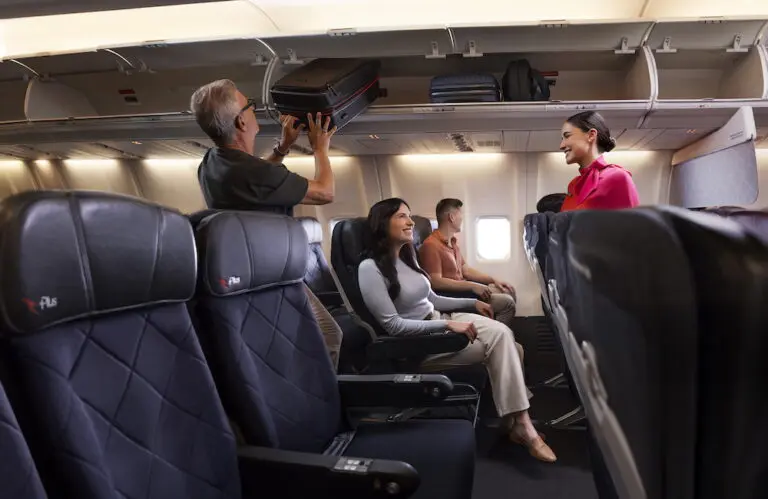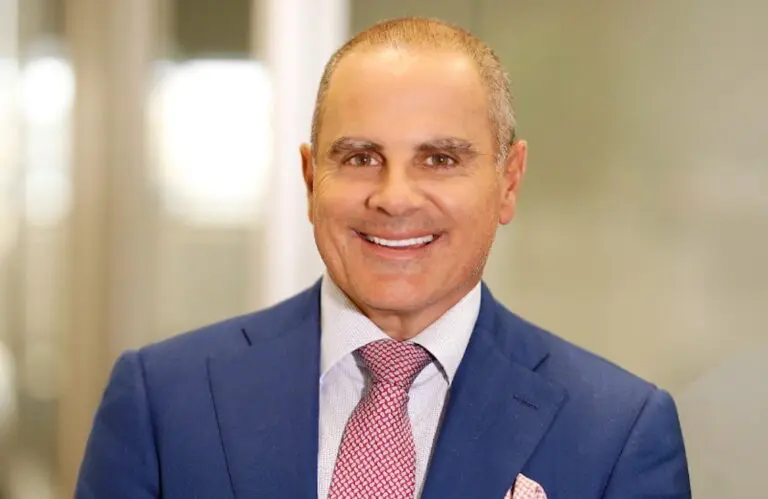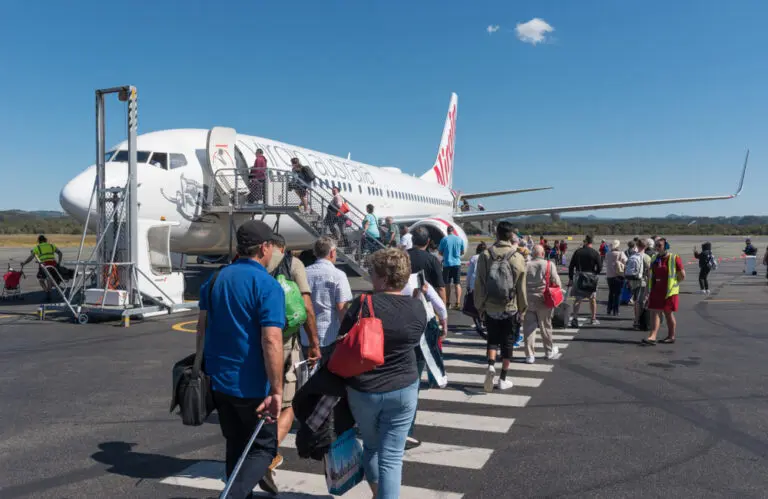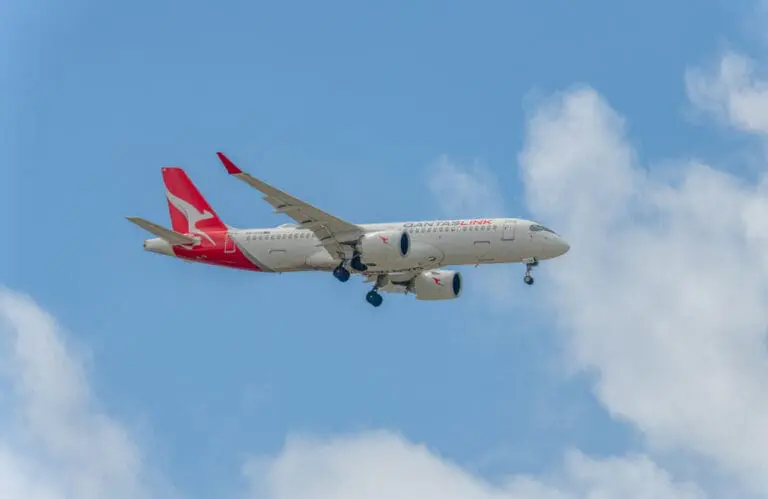Virgin Australia’s former chief executive, Jayne Hrdlicka, is set to walk away with an extraordinary $49.9 million payout, combining cash payments and shares, following her sudden resignation earlier this year.
The airline’s 2025 Annual Report, released today confirms the scale of Hrdlicka’s so-called “golden handshake”. It includes $20.1 million in salary, termination payments and short-term incentives, along with $29.7 million in shares tied to the company’s public listing.
The deal is regarded as one of the largest executive payouts in Australian aviation history, and very likely the biggest, eclipsing even Alan Joyce’s reduced exit package from Qantas.
In plain terms, the report shows that Hrdlicka took home about $1.2 million in regular pay (salary, leave and super) and a further $18.4 million in bonuses and termination payments. On top of that, she kept just over 10 million shares in Virgin Australia after giving up nearly 7 million when she left. At the airline’s IPO price of $2.90, those shares are worth around $29.7 million.
She can’t cash them in straight away: the shares are locked up until February 2026 and can only be sold gradually, provided she sticks to certain post-employment conditions. Some of her payout is also being held back in escrow and will be released over three years.
How did Virgin Australia justify such a payout?
In the report, Virgin Australia’s chair Peter Warne highlighted that the airline had undergone a “transformative year”, describing how Hrdlicka and her leadership team repositioned the carrier into a “high-performing organisation in a robust financial position” ahead of its return to public ownership and the launch of the recent Qatar Airways partnership.
The airline defended the generous equity scheme, noting it was introduced to attract and retain senior leaders capable of steering Virgin out of administration and into profitability after years of losses and pandemic disruption.
While the payout size has raised eyebrows, analysts suggest it underlines the high stakes of executive contracts in turnaround situations. Virgin Australia is now publicly listed and must deliver consistent growth and profitability under new chief executive Dave Emerson to justify the rewards already paid out.
Emerson, who was promoted from Chief Commercial Officer to CEO in March, will earn a tidy $13.7m for the 2025 financial year, with the vast majority made up of shares. Additionally, Chief Financial Officer Race Strauss is in line for $11.1m, while the Chief Executive of Virgin’s loyalty program Velocity, Nick Rohrlach, will pocket $15.8m.
Responding to the news, the Transport Workers Union (TWU) National Secretary Michael Kaine said, “Following recent announcements of strong profits at Virgin, enabled by a workforce that has worked non-stop to deliver these results, this annual report is an encouraging sign of the future of a strong airline.
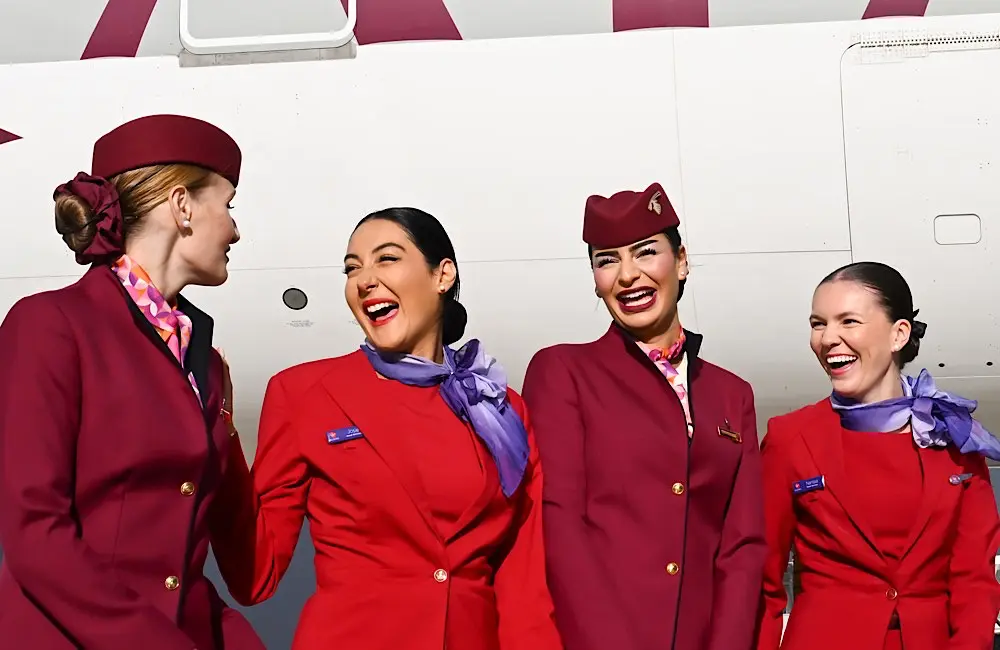
“What is eye-watering to the average aviation worker as well as the Australian public is the near $50 million pay packet now handed out to former CEO Jayne Hrdlicka. We cannot continue to see CEOs and executives in aviation pocket obscene salaries while the industry is at breaking point.
“With bargaining across the group upcoming over the next year, it is crucial Virgin continues to listen to the people who have turned this airline around. What is crystal clear is that if the airline can hand out exorbitant pay packets to executives it can ensure its workers have good, secure jobs.
“What we need to see across the industry is that the number one priority is on safety and decent standards—both for workers and passengers. Virgin should join us in pursuing reform including a Safe and Secure Skies Commission to return the community focus back to aviation, instead of executive profits,” said Kaine.
How does this compare with Alan Joyce’s exit from Qantas?
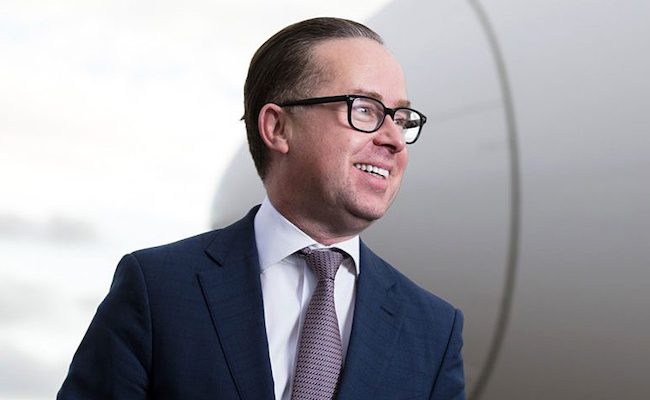
Alan Joyce’s departure from Qantas (QF) was also lucrative but far more controversial. His final remuneration was famously cut back after a litany of mistakes and governance reviews, reducing what could have been more than $23 million. Even so, Joyce still walked away with around $14 million in 2023, plus a final share payout of nearly $4 million in 2025. The contrasting outcomes highlight how public and governance scrutiny at Qantas clipped Joyce’s rewards, while Virgin’s IPO-driven scheme boosted Hrdlicka’s.
Golden handshakes of this size are still rare in the Australian aviation landscape, though they are more common in global markets. Virgin’s decision highlights how airlines may increasingly use share-based incentive structures to attract top talent, particularly in volatile post-pandemic conditions.
The real question will be whether these schemes are seen as fair rewards for risk and performance, or excessive payouts that risk alienating the wider workforce, investors, regulators and the travelling public.
That said, following today’s release of the Virgin Annual Report, shares in Virgin Australia Holdings Ltd (VGN.AX) were up by 4 cents at close. Investors seemingly did not bat an eyelid at the almost $50 million package former CEO Jayne Hrdlicka received as she farewelled the airline.
With more than 10 million shares included in that exit package, Ms Hrdlicka will also benefit from any further share gains to increase her payout.
Hrdlicka will begin her next chapter by leading the Endeavour Group, owner of retail group Dan Murphy’s, from the beginning of 2026.
Read the full Virgin Australia 2025 Annual Report here.



